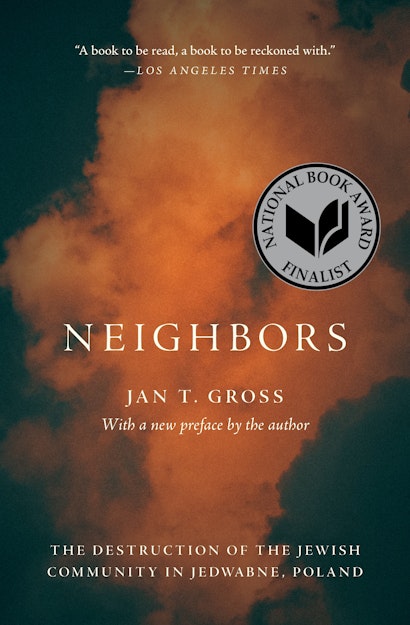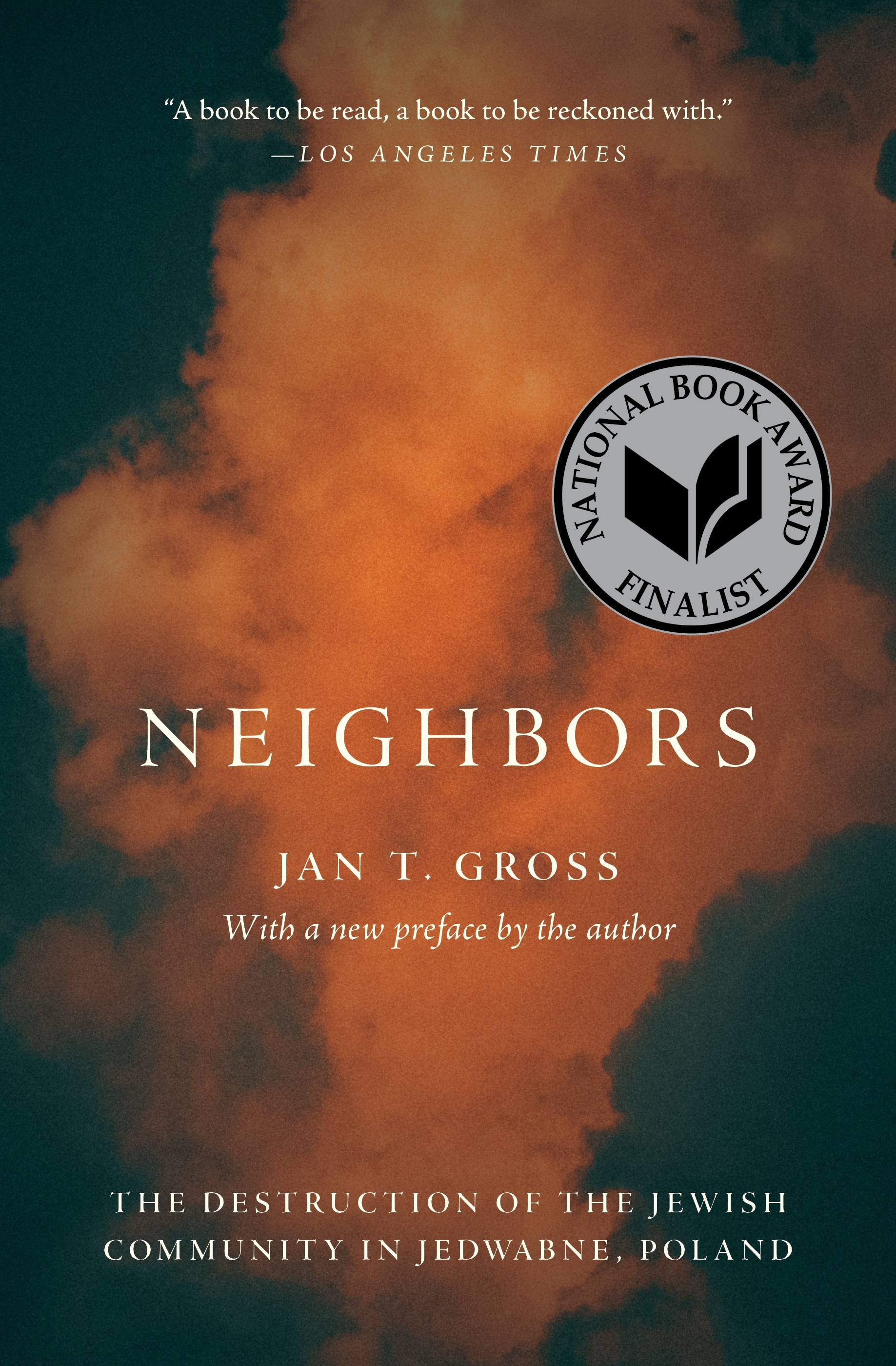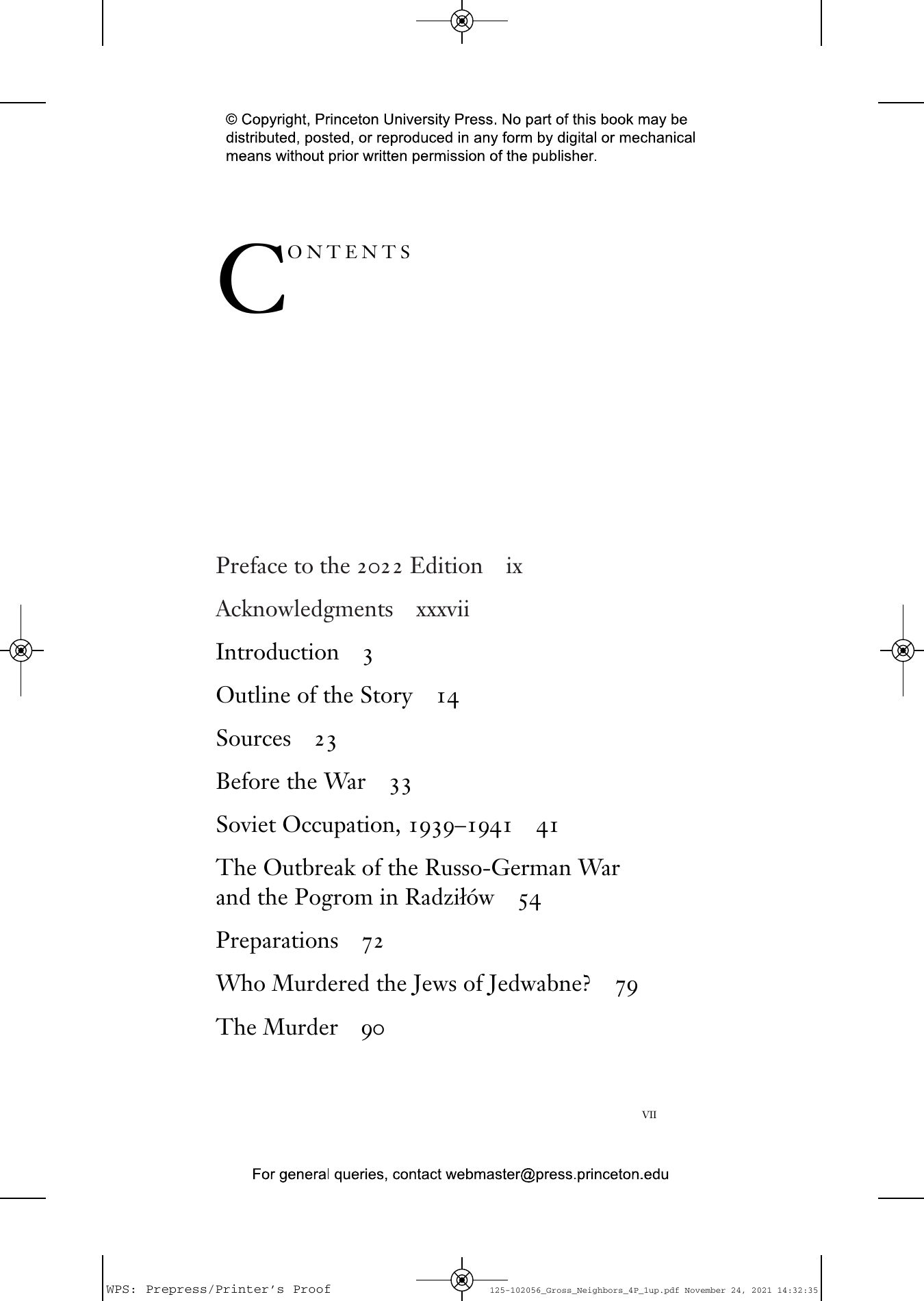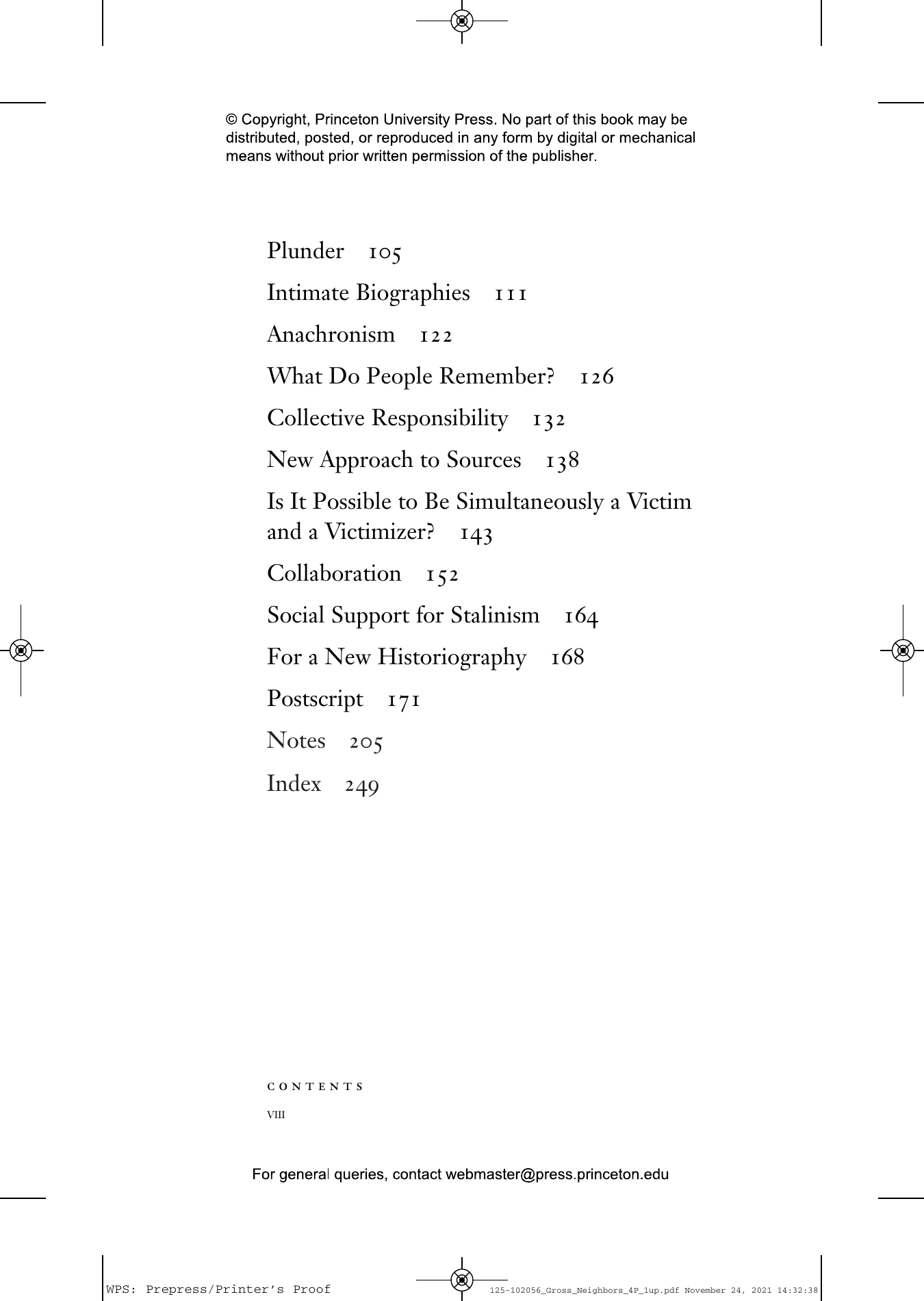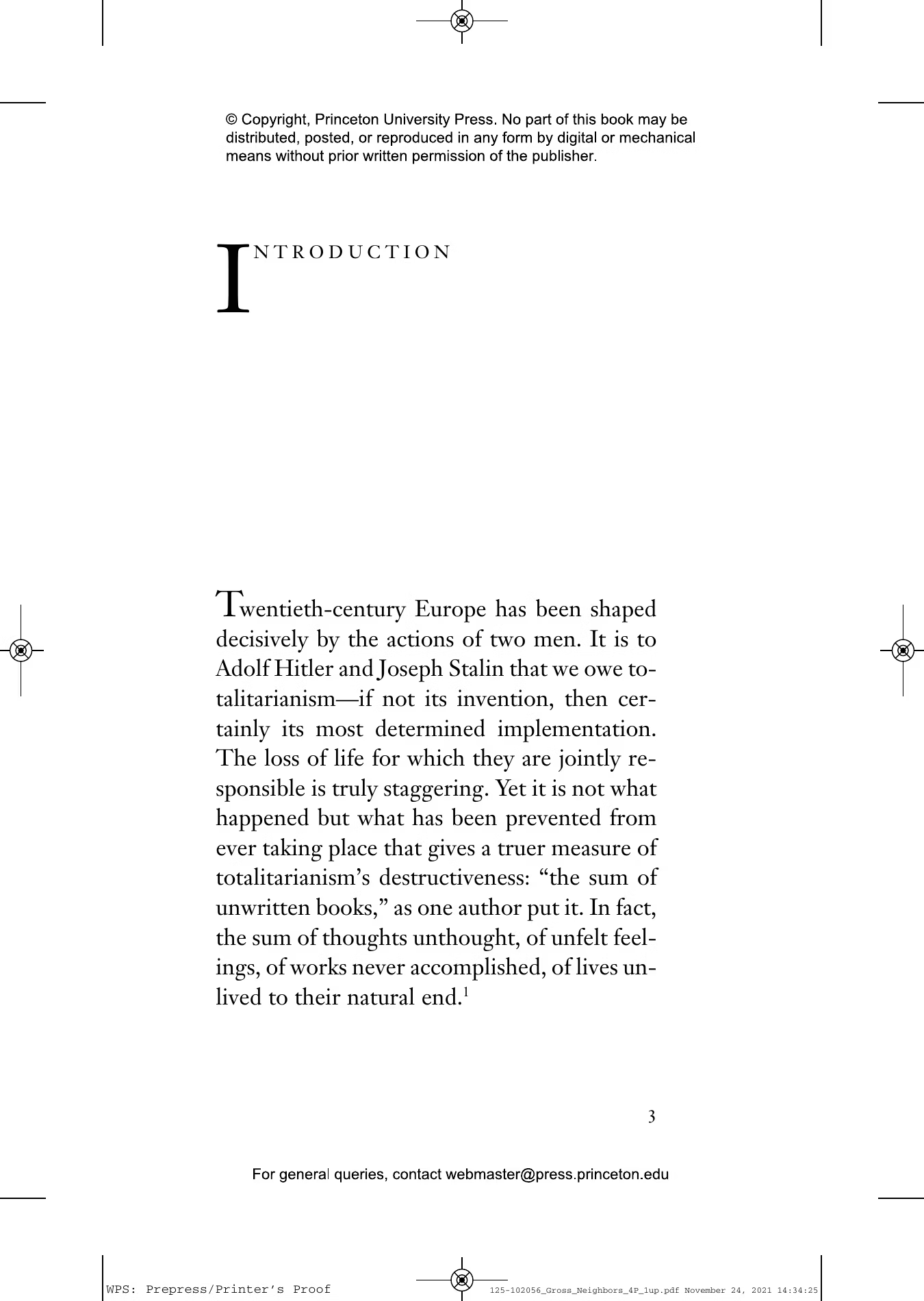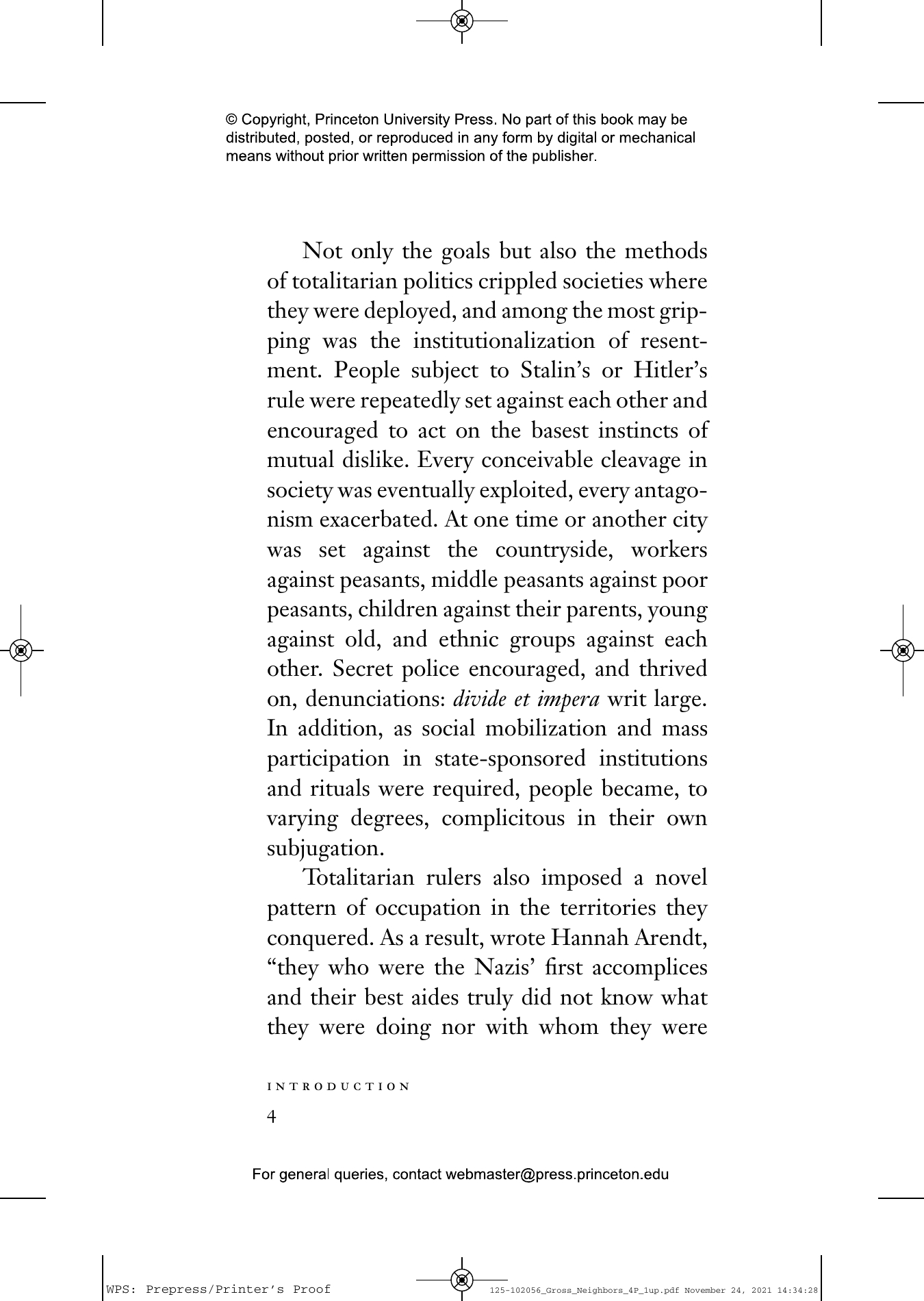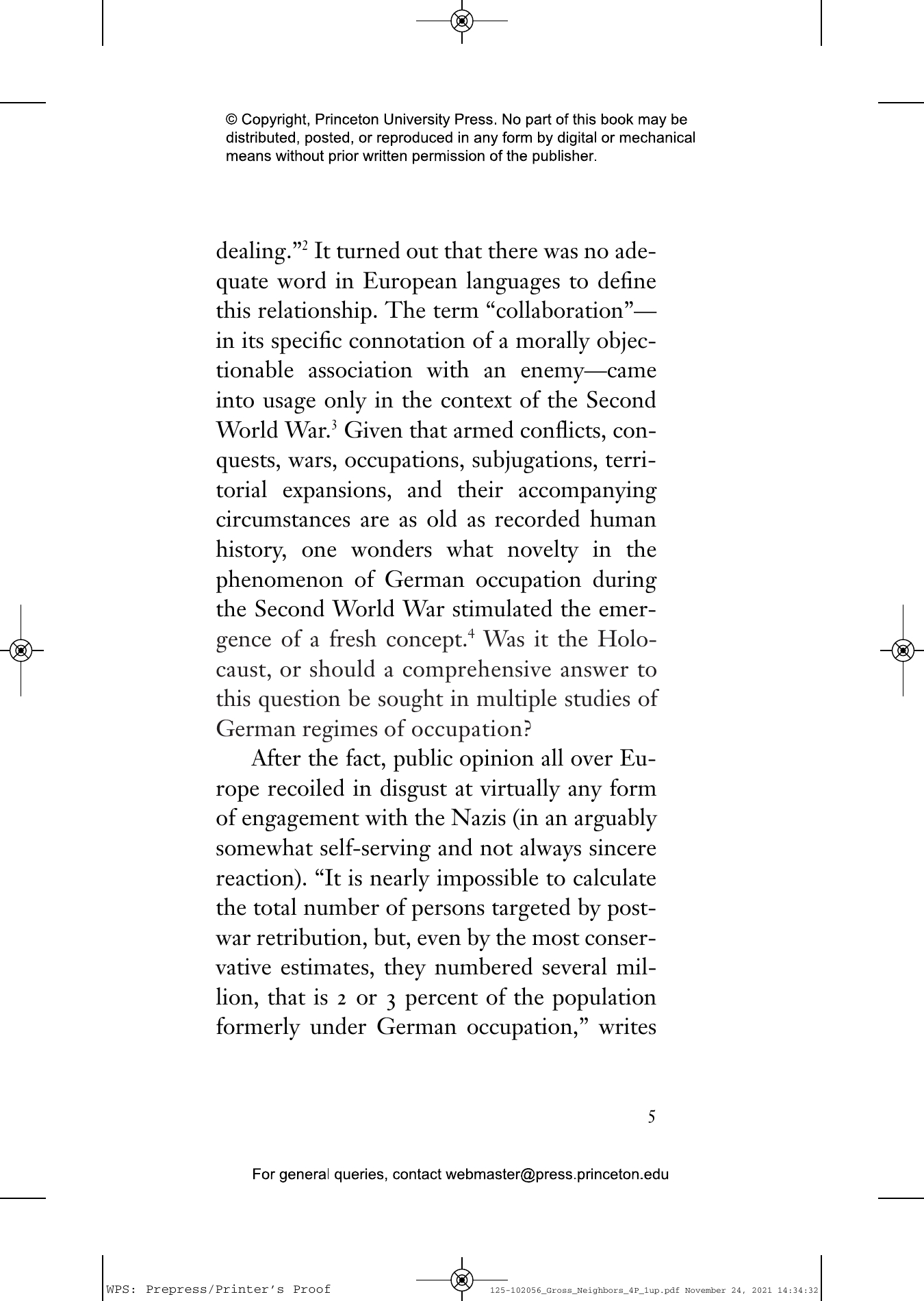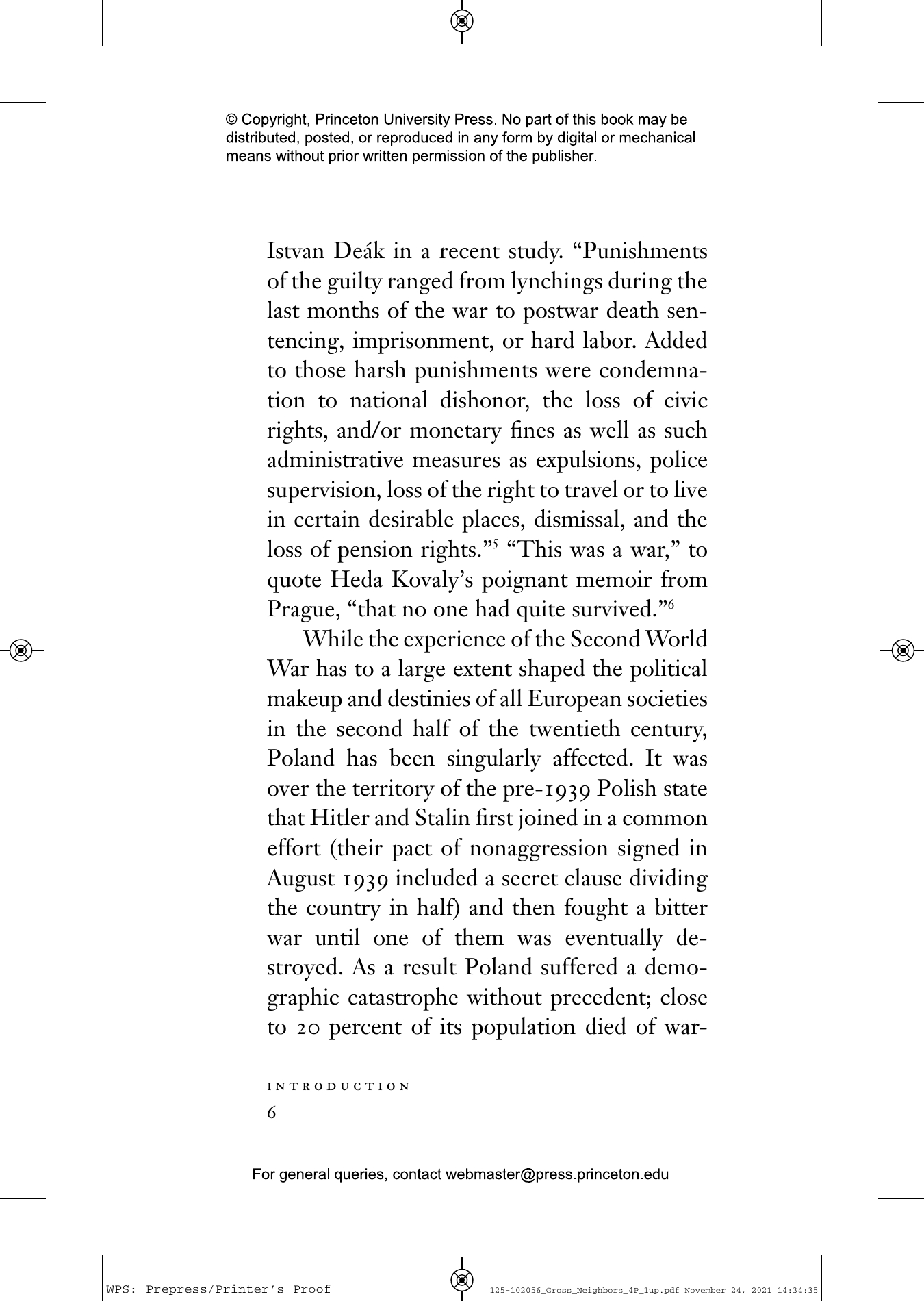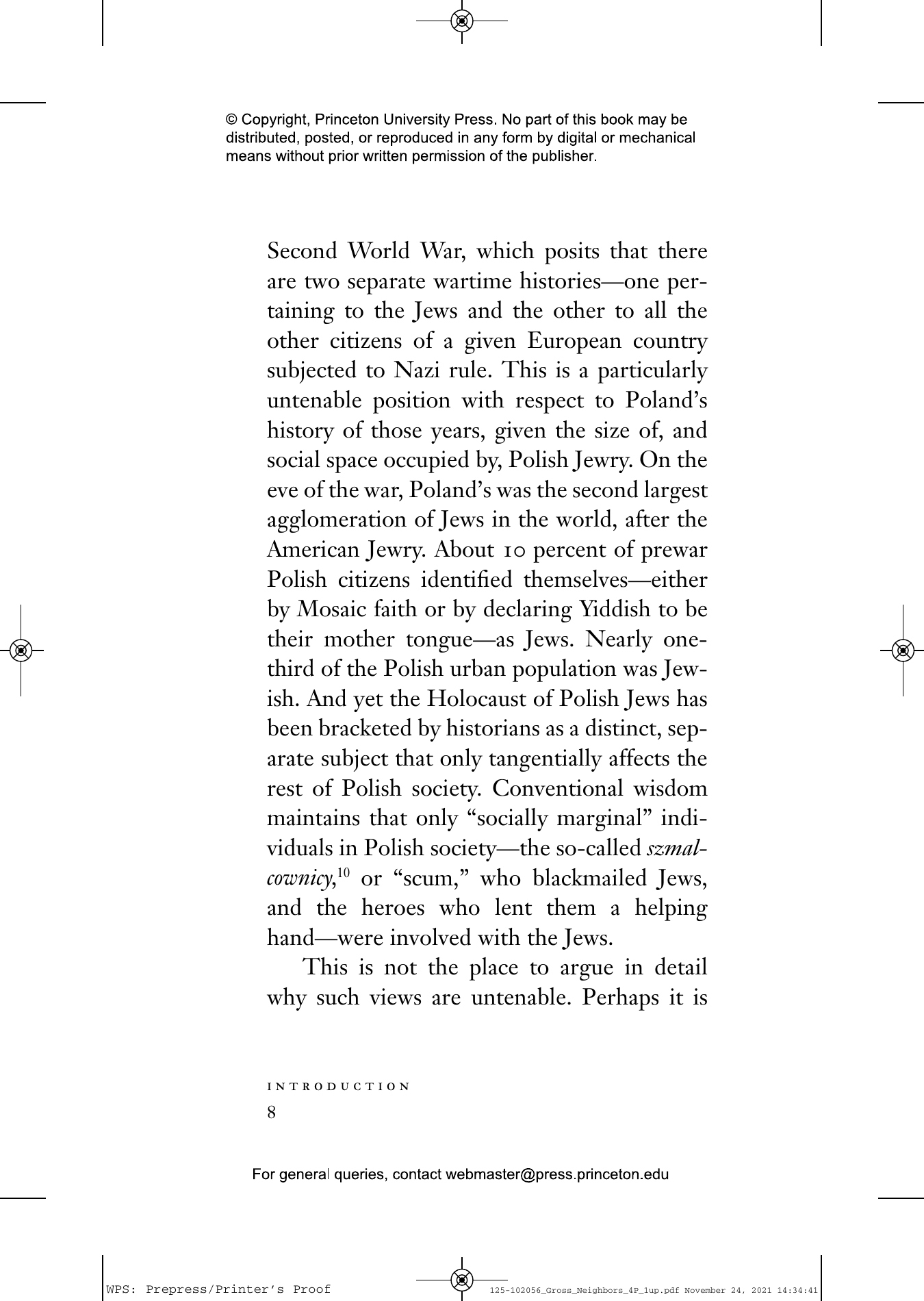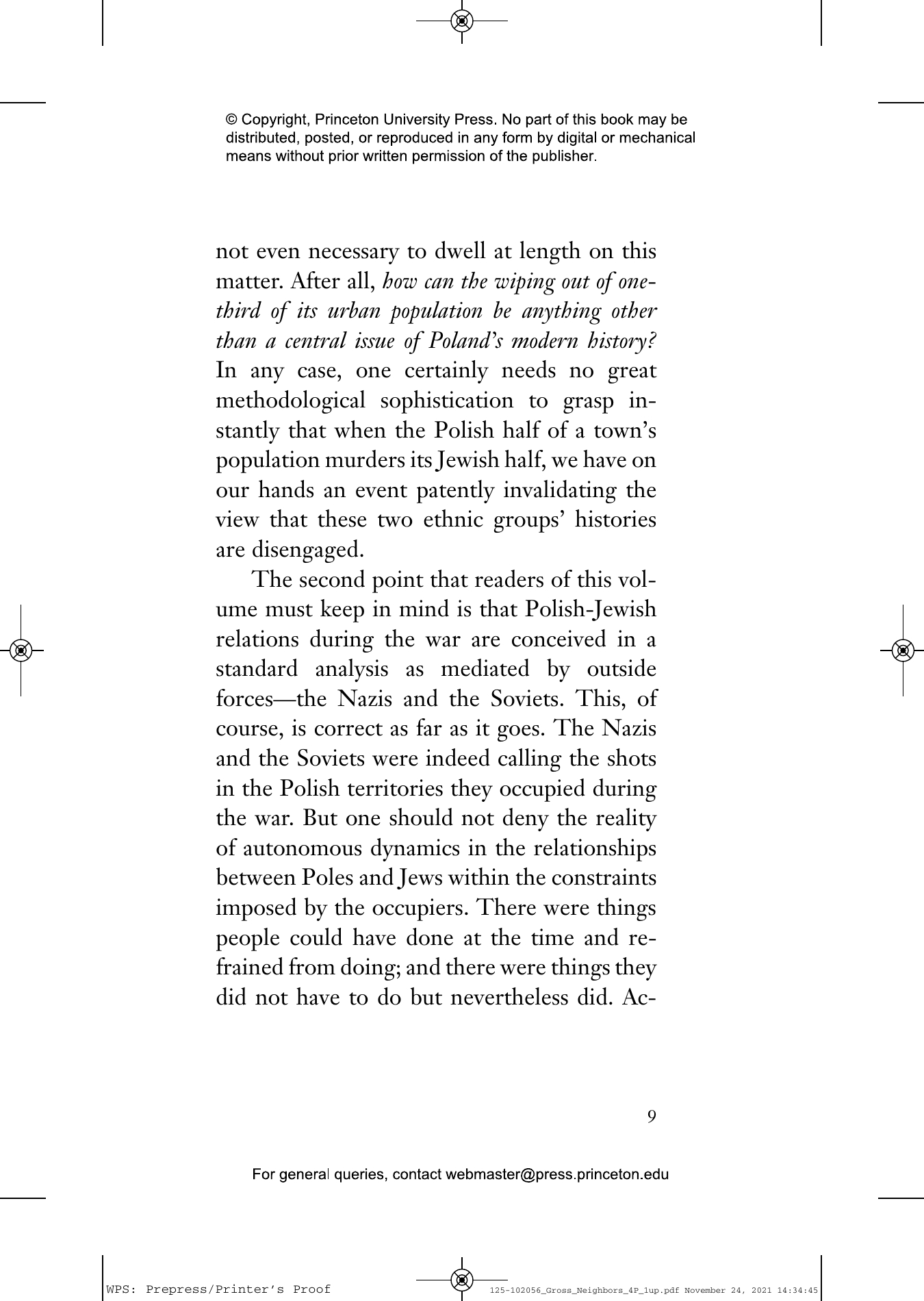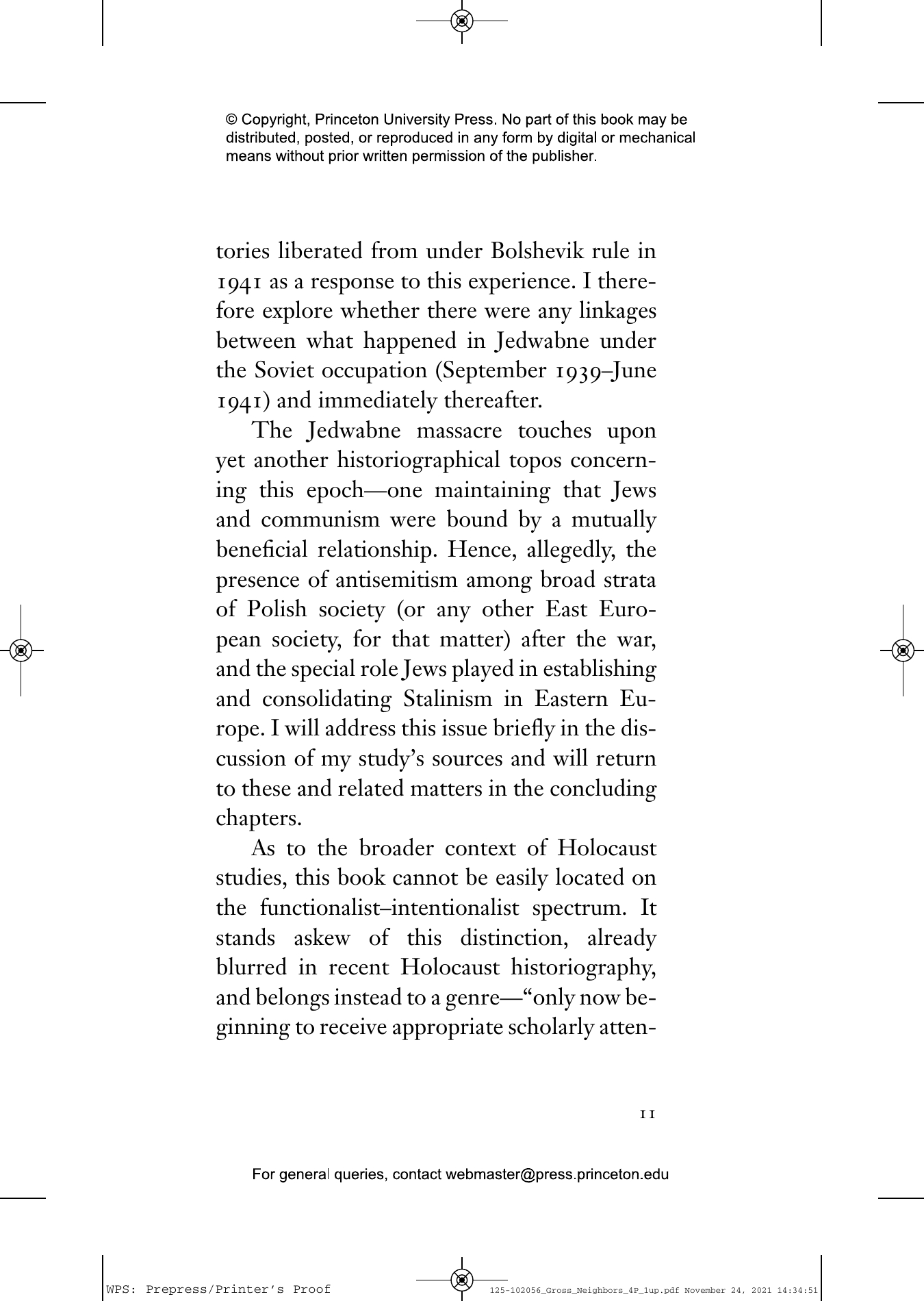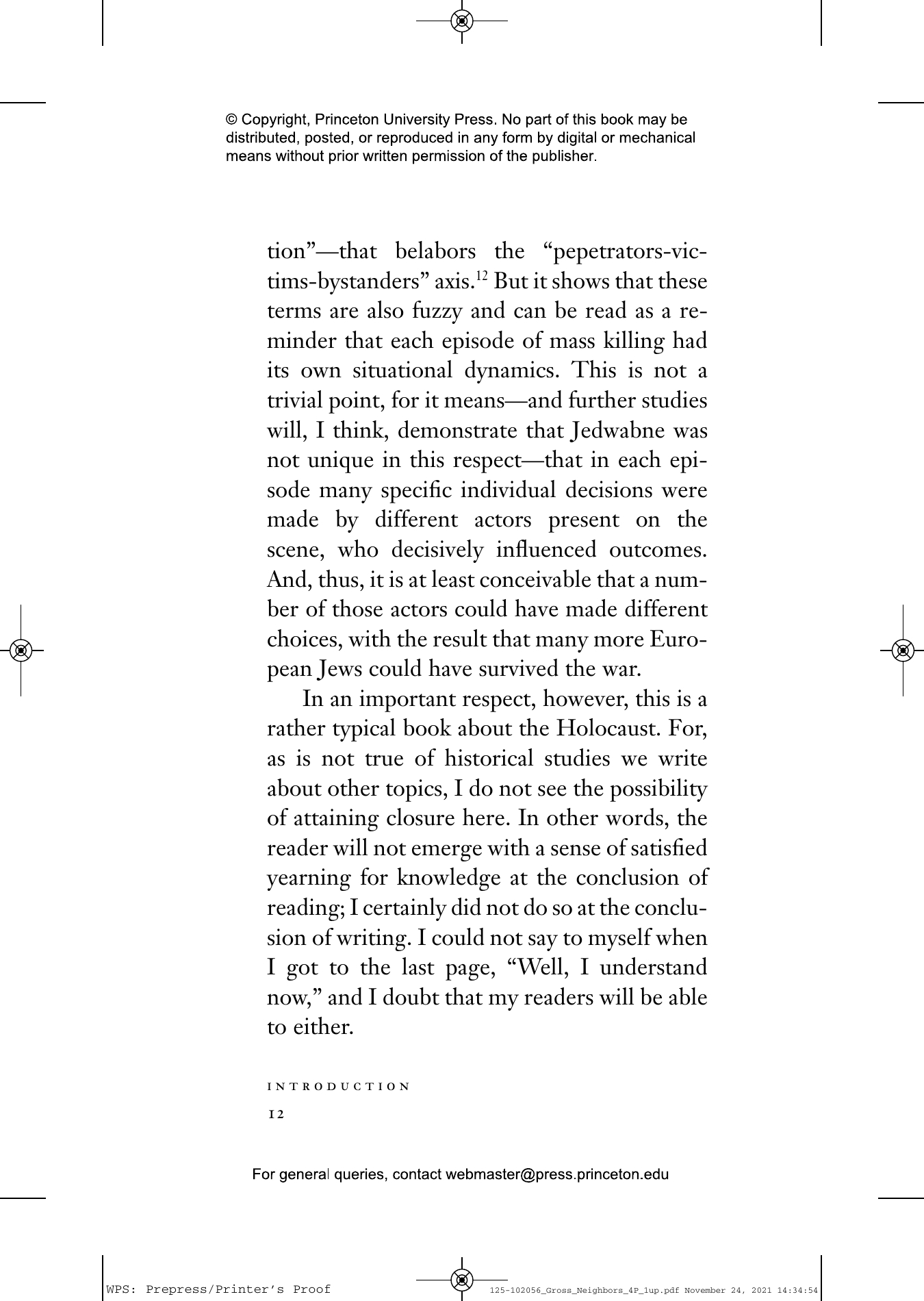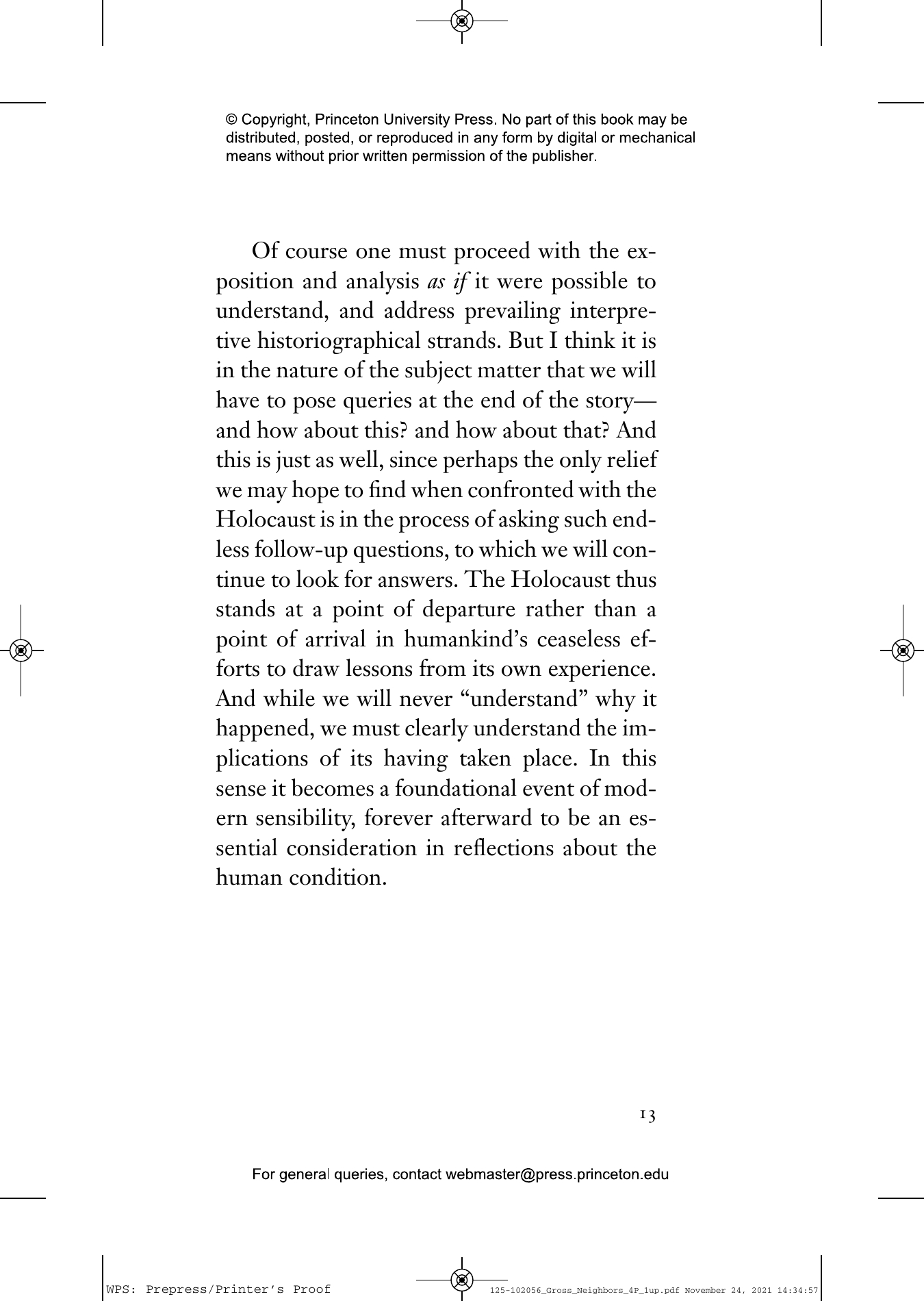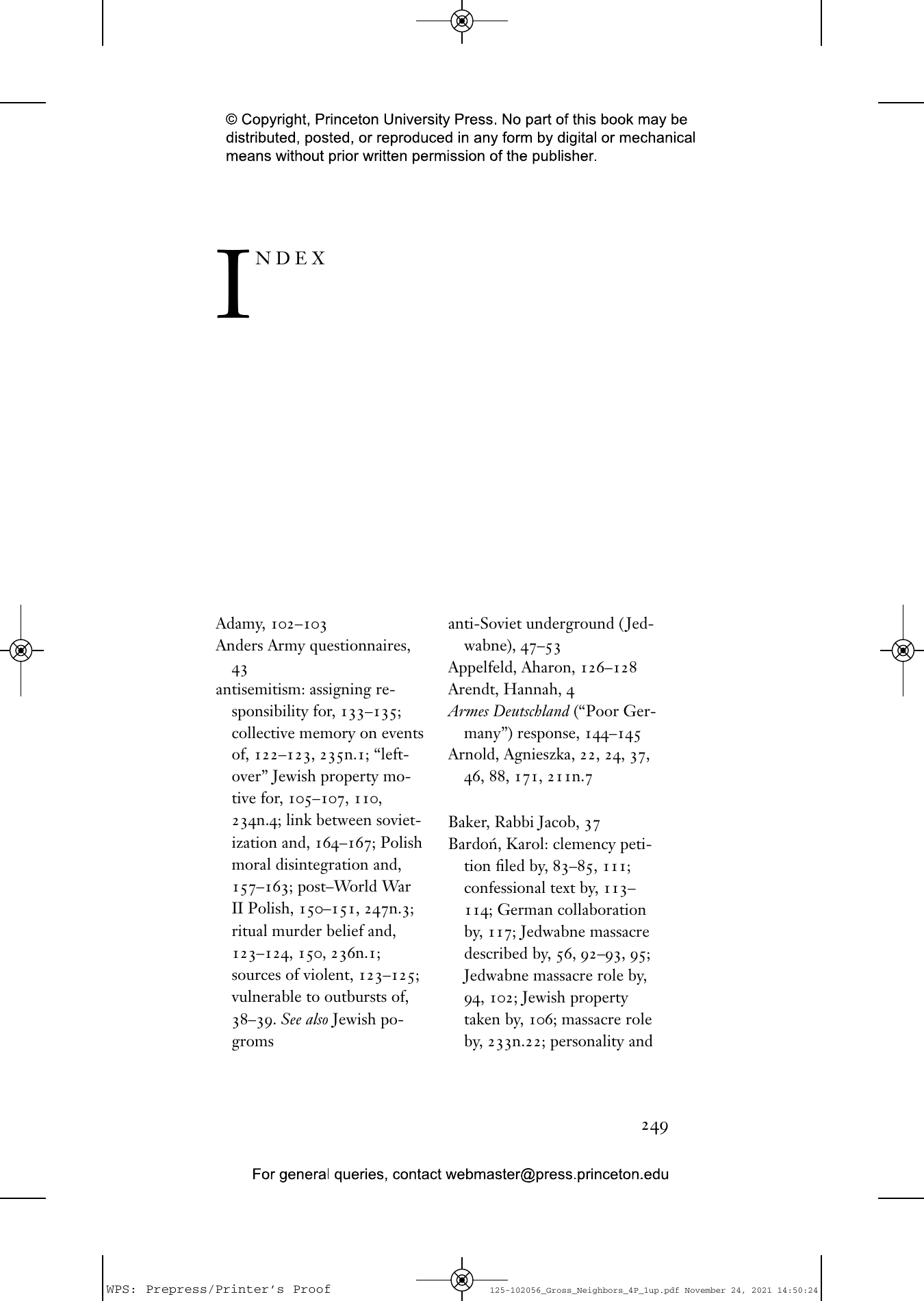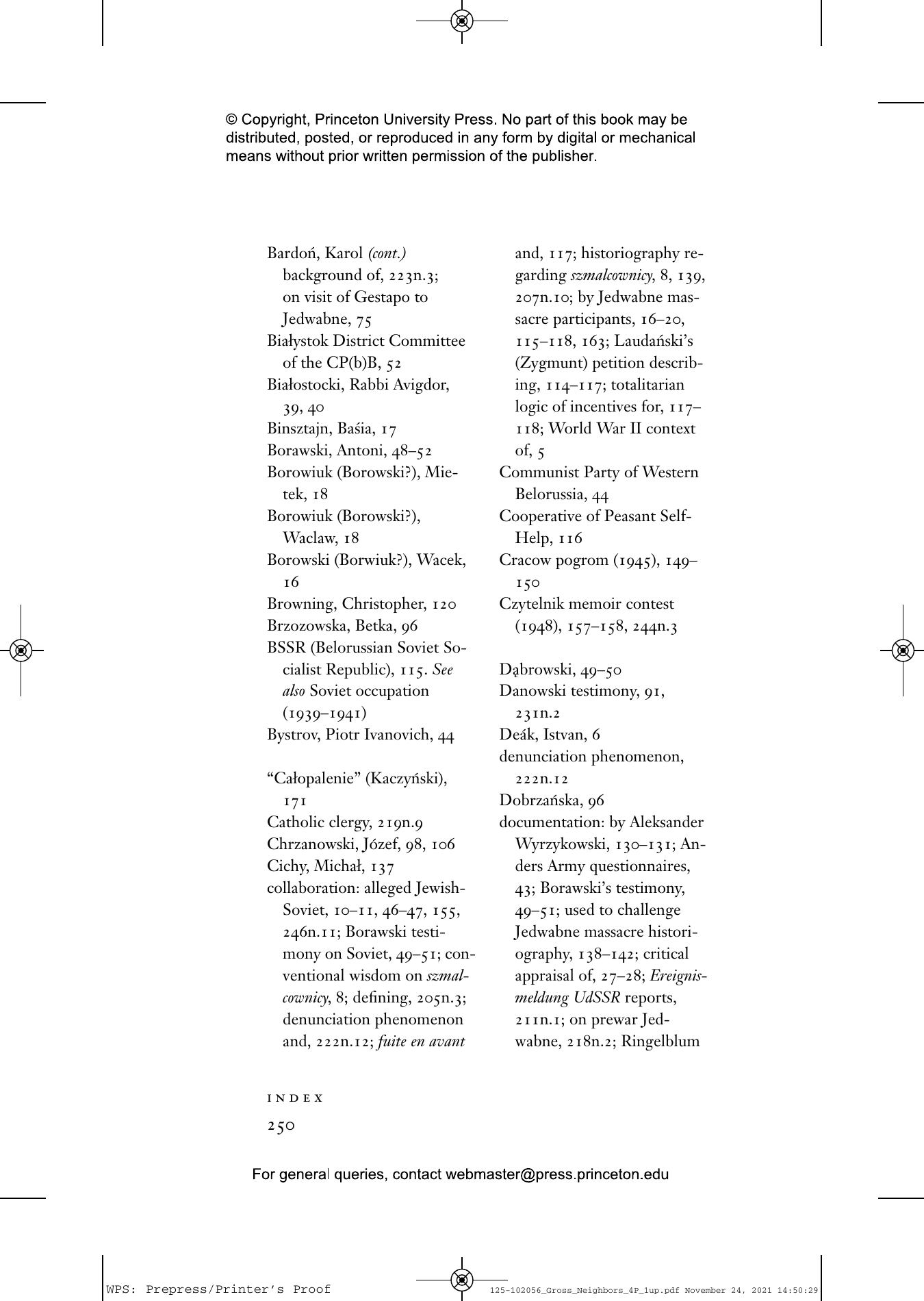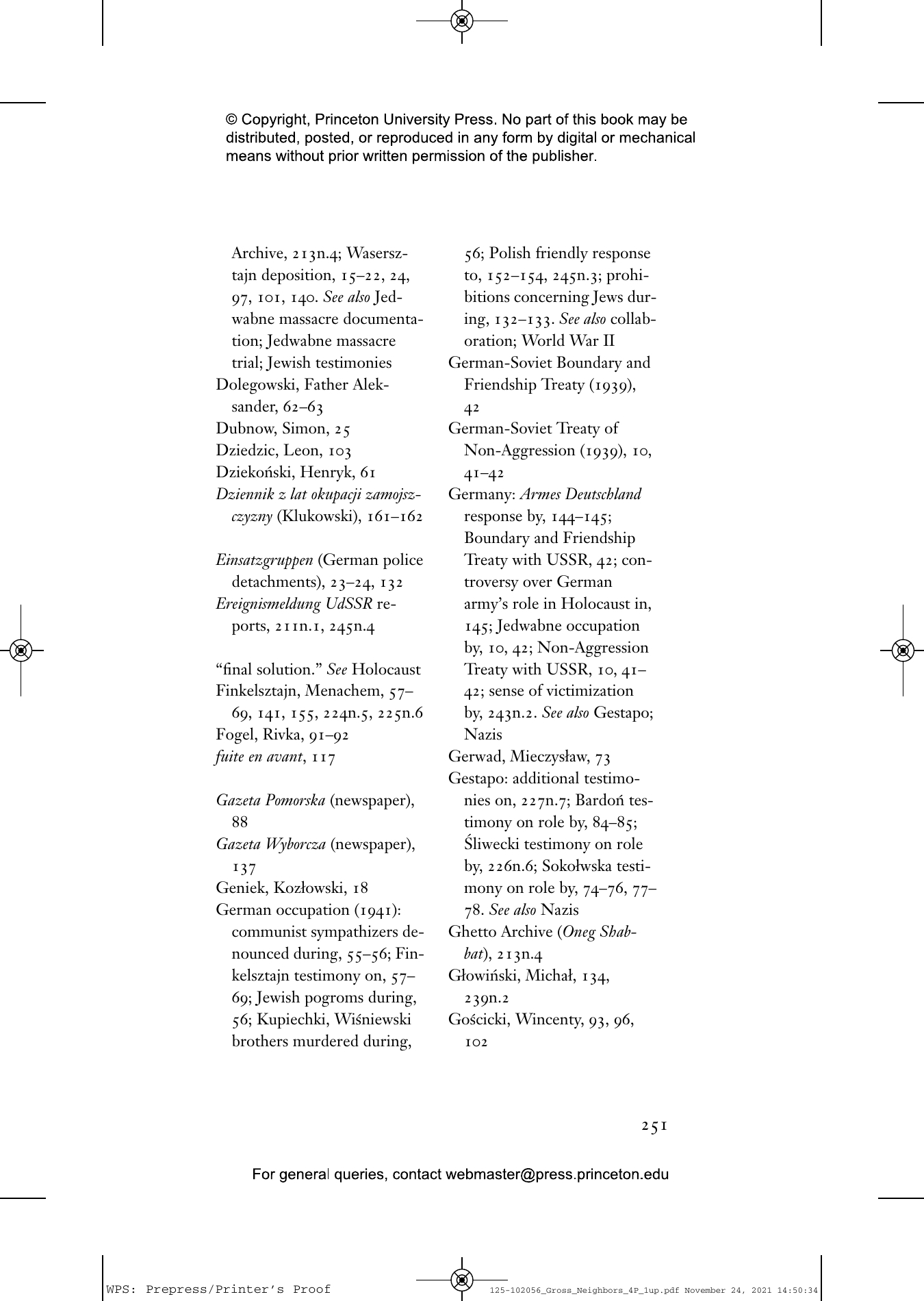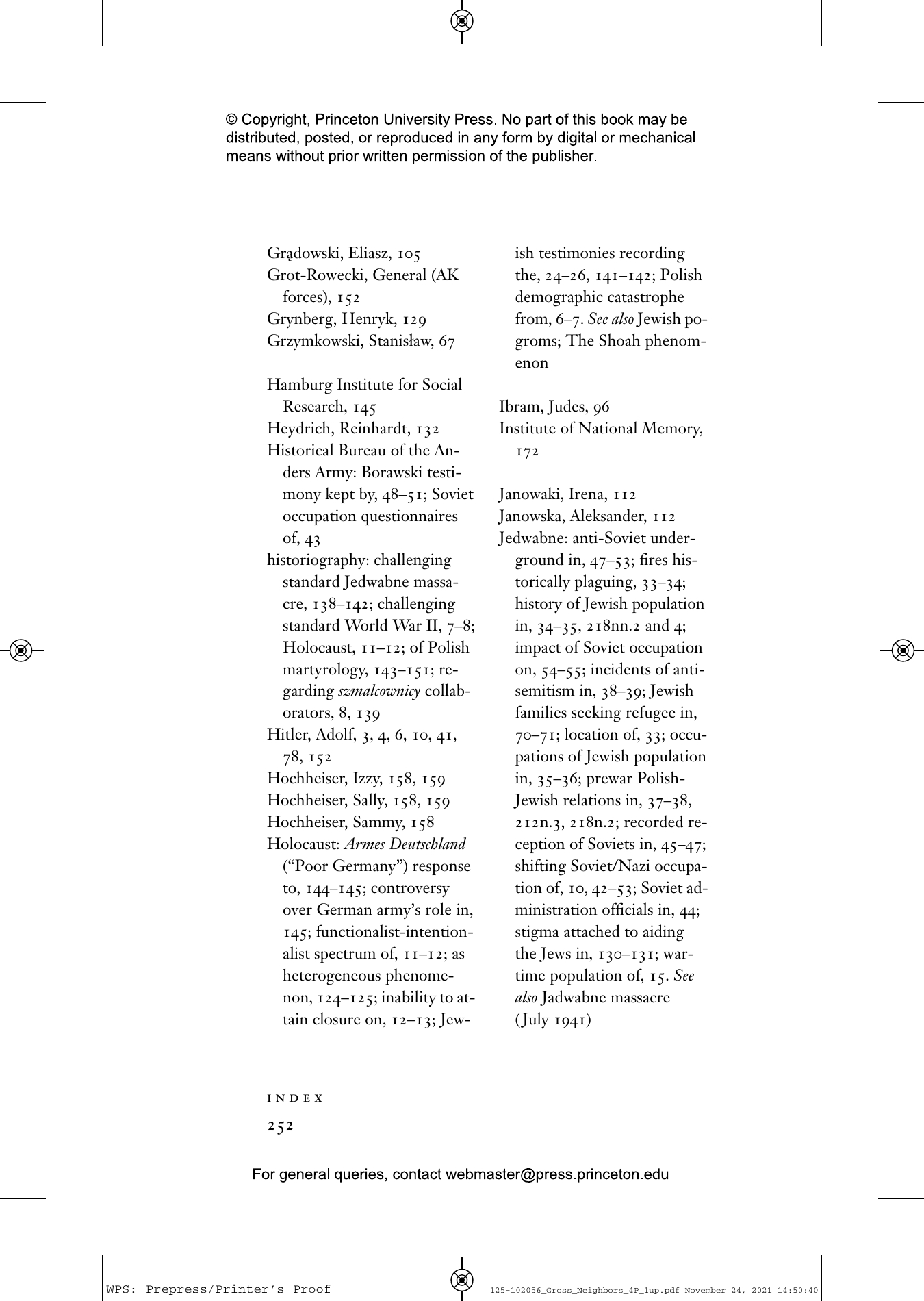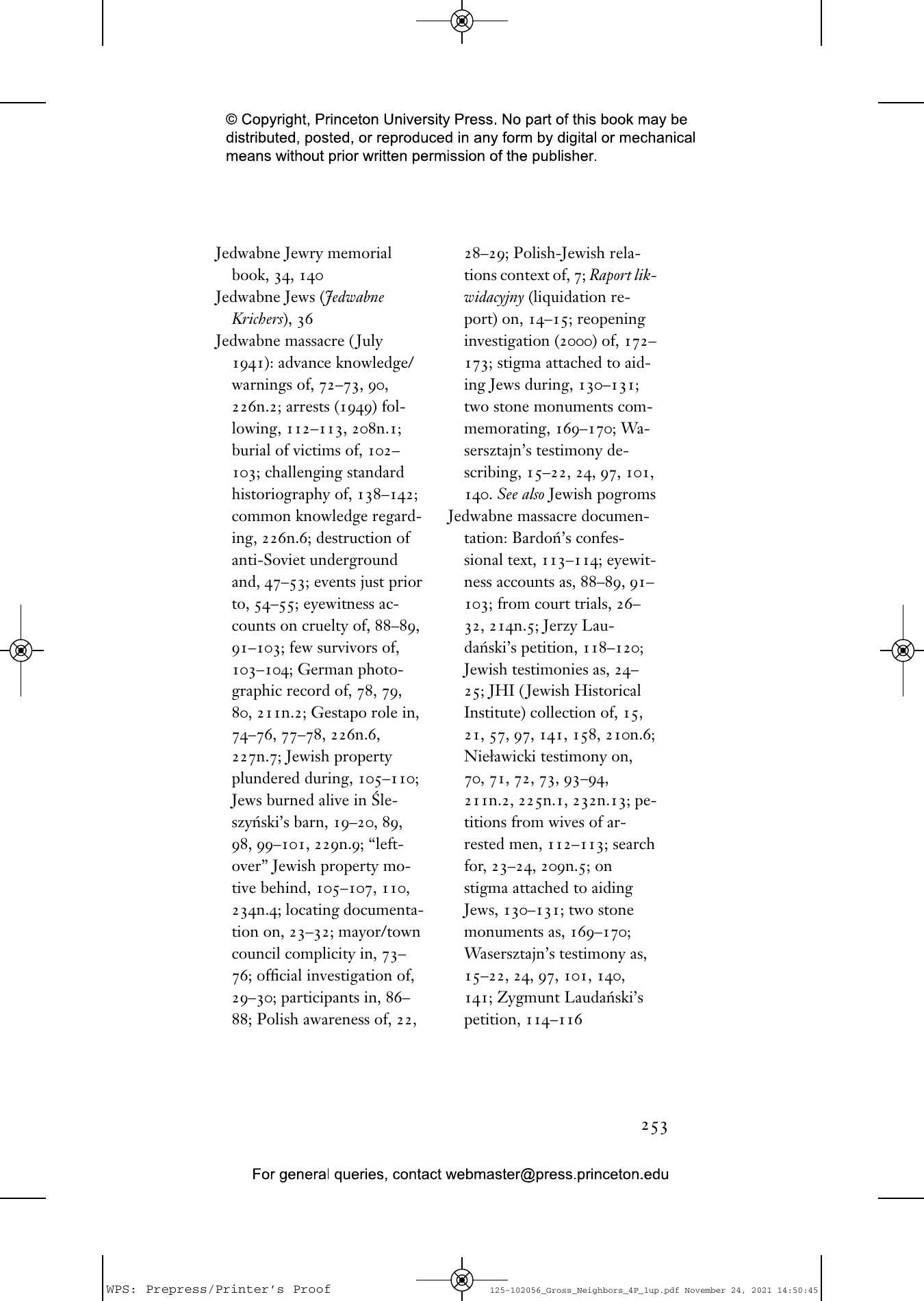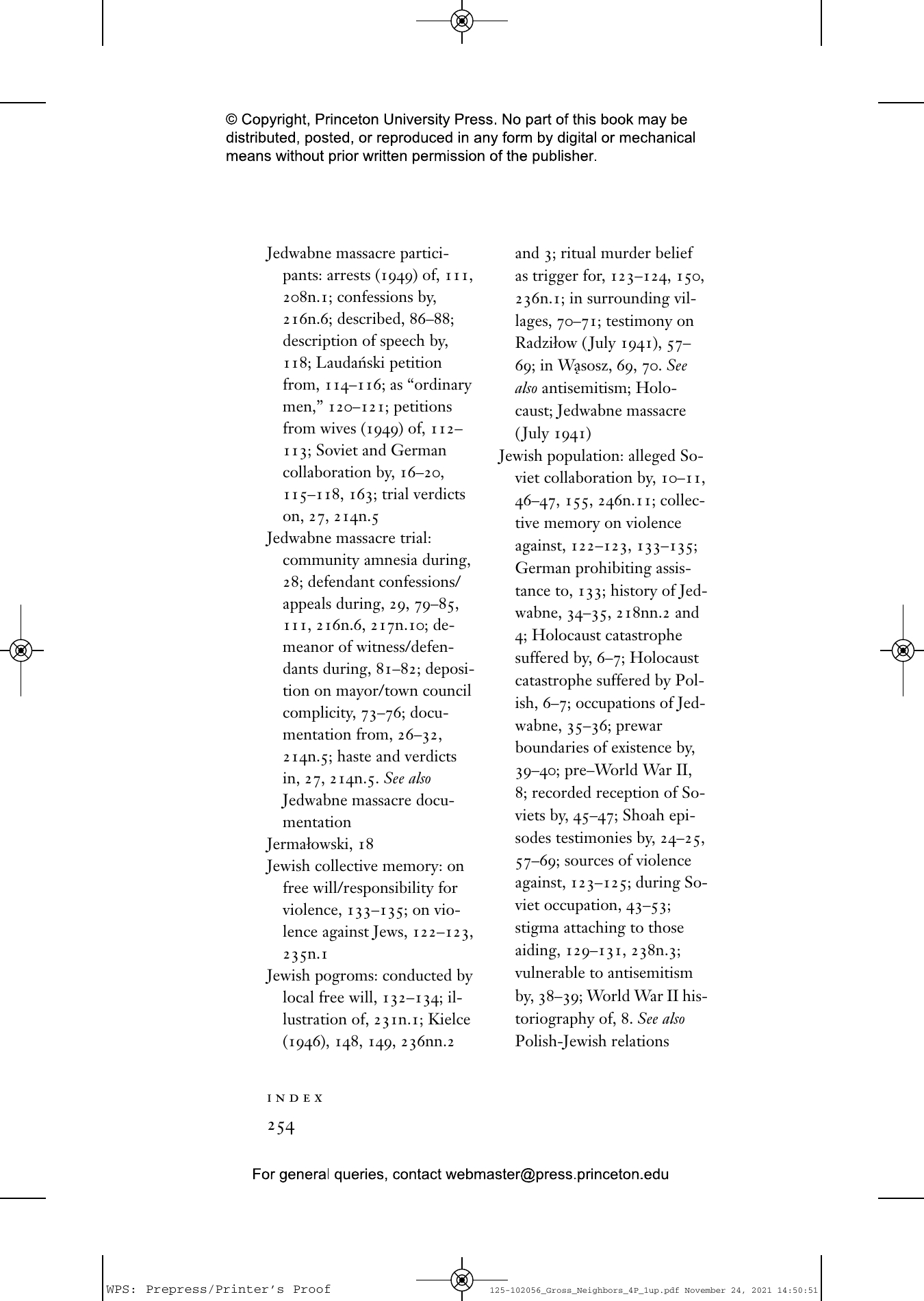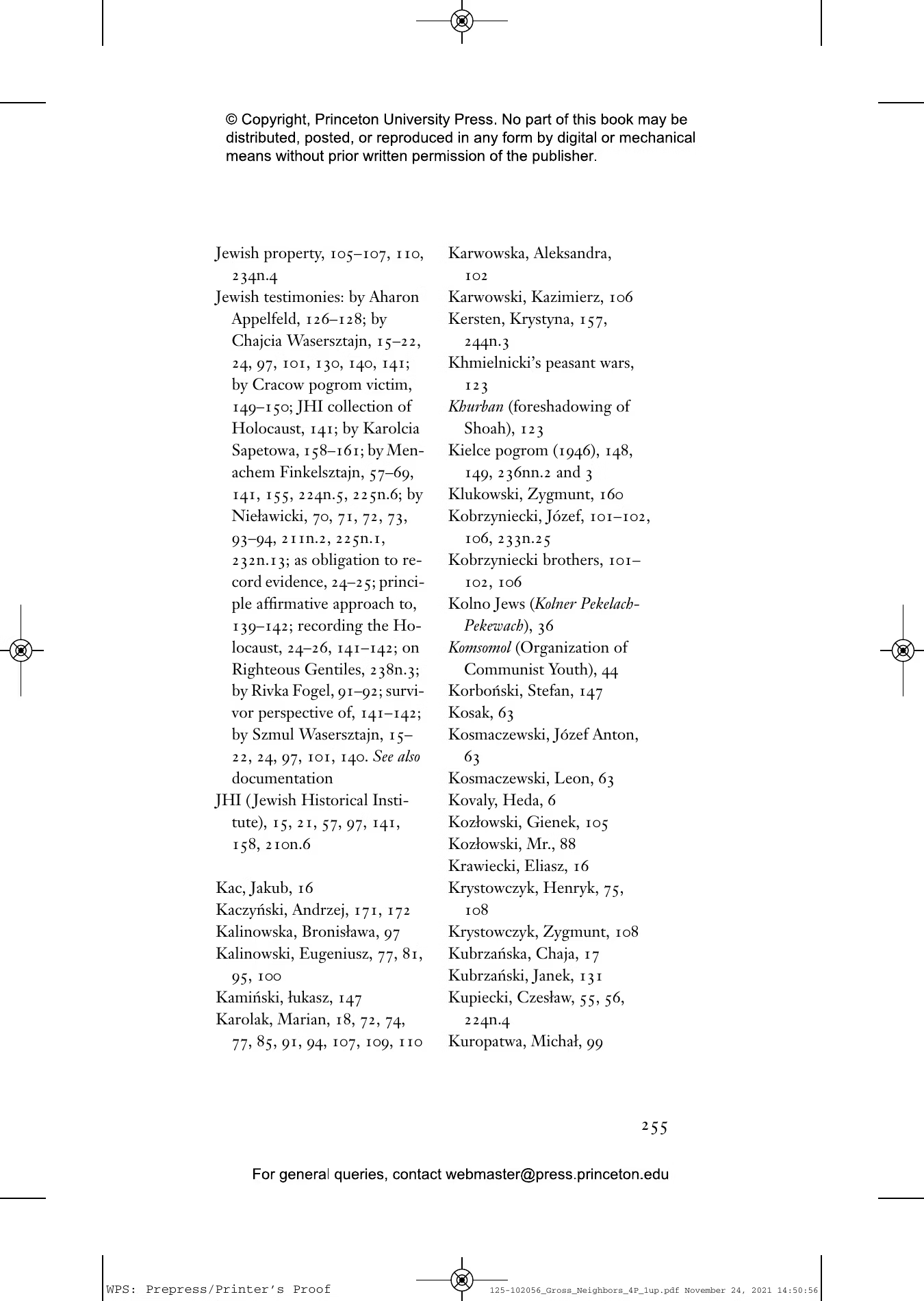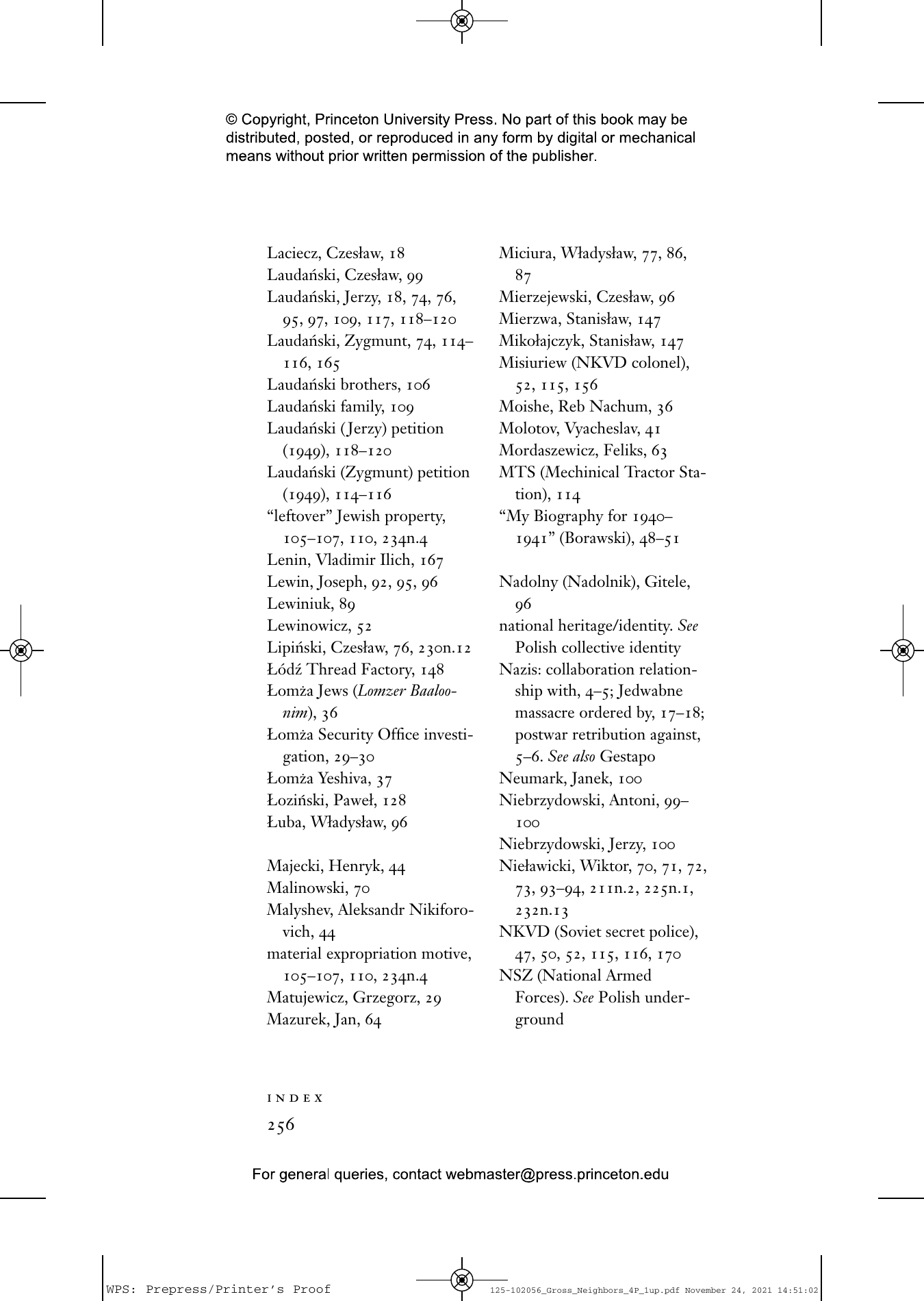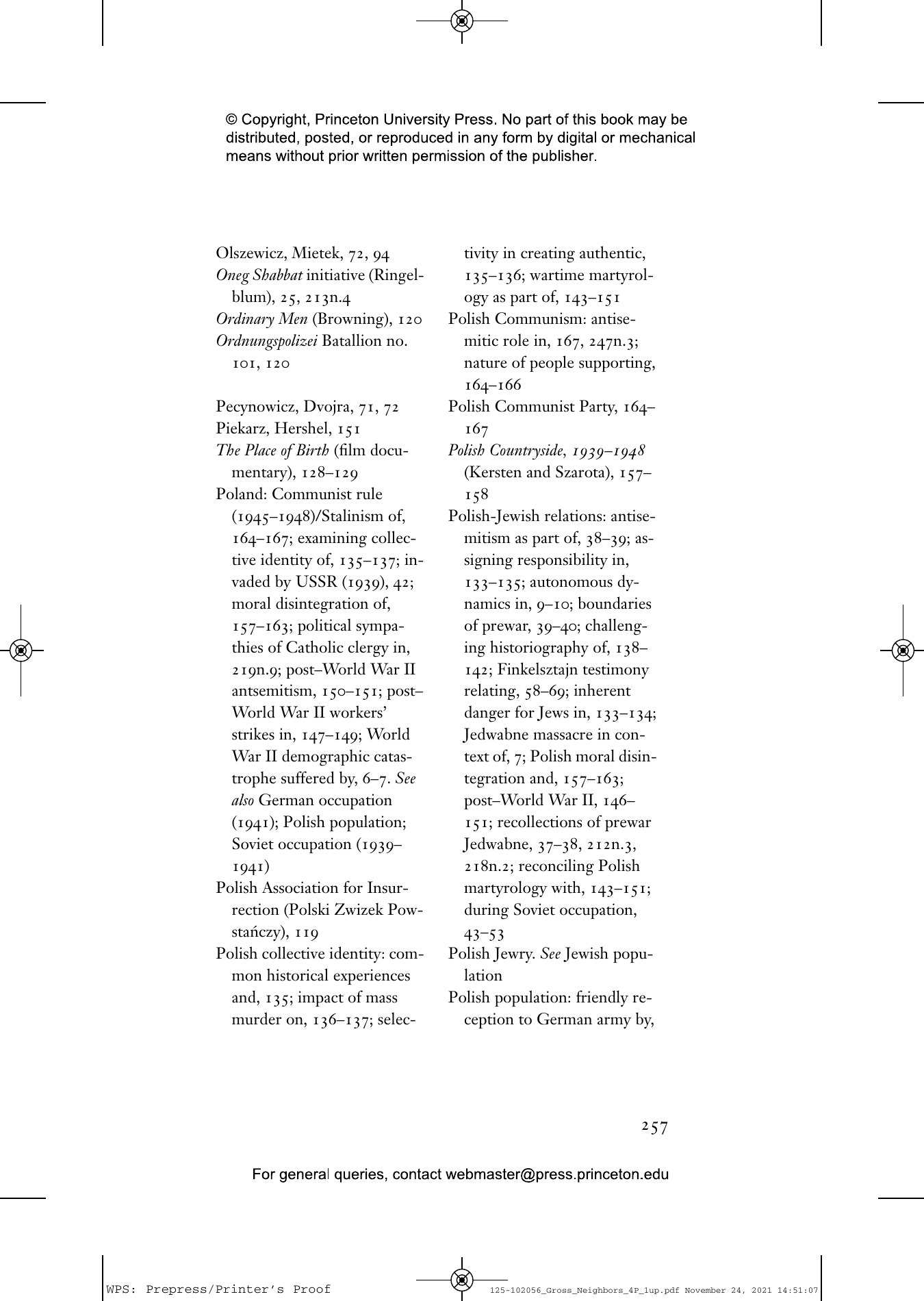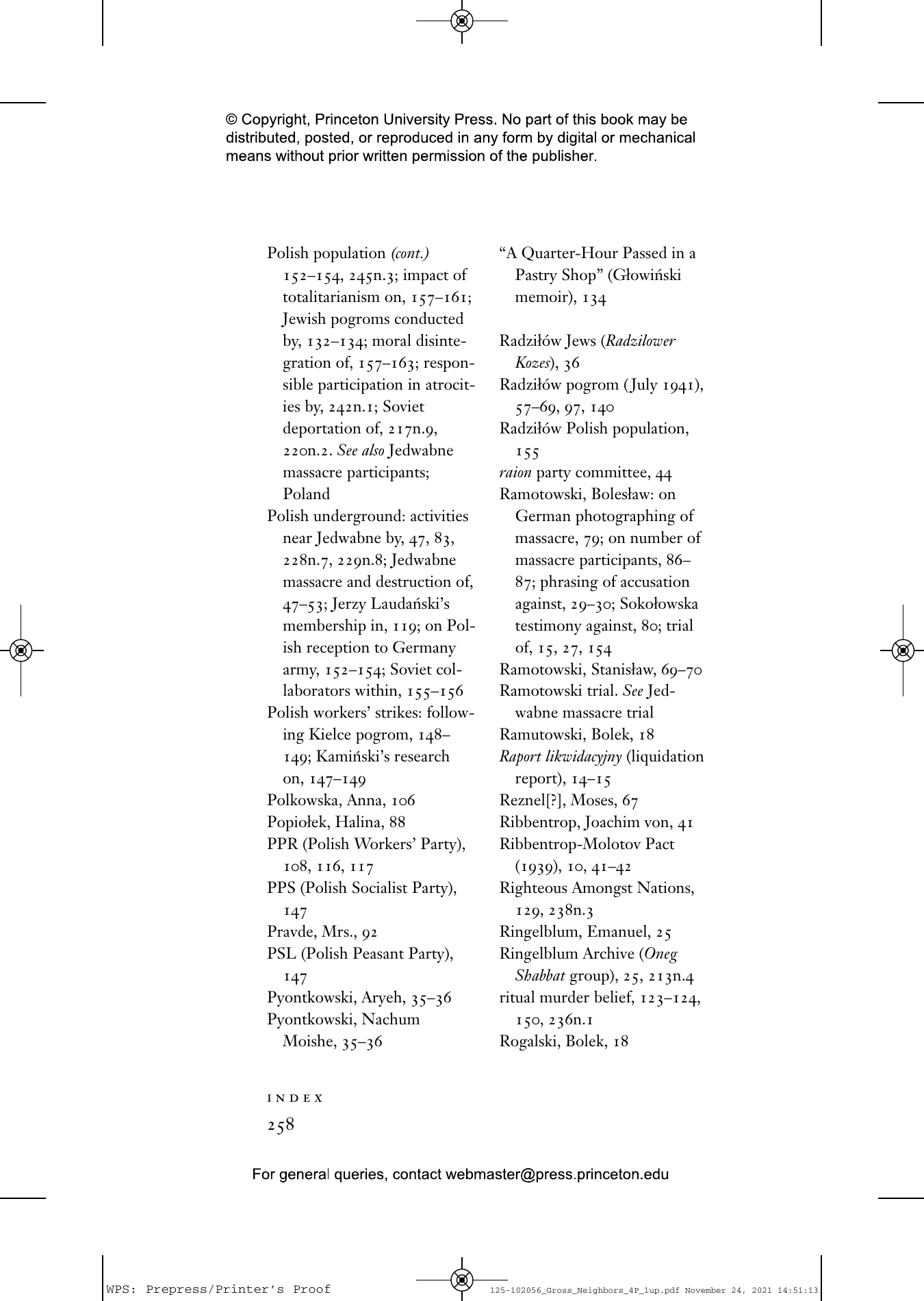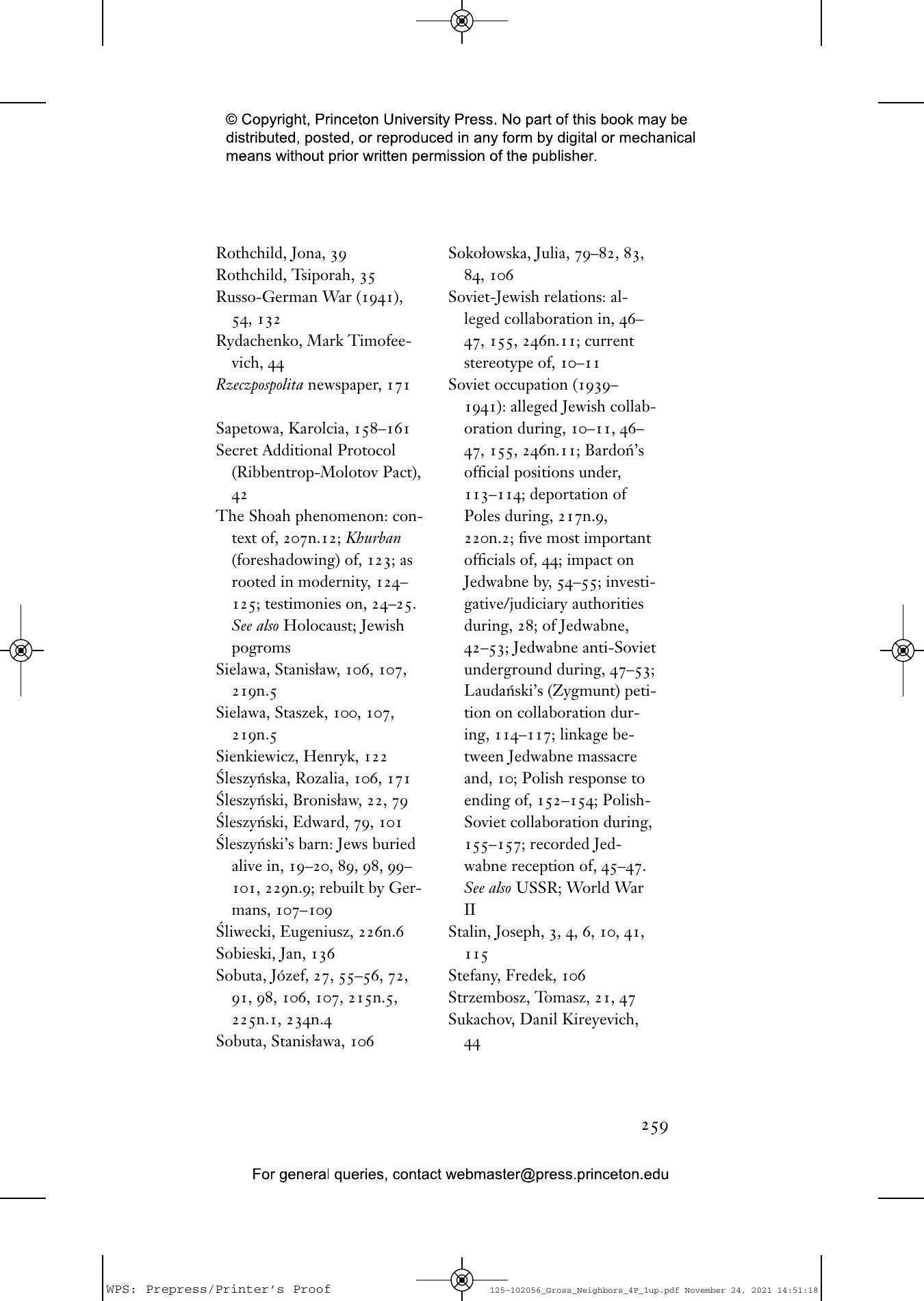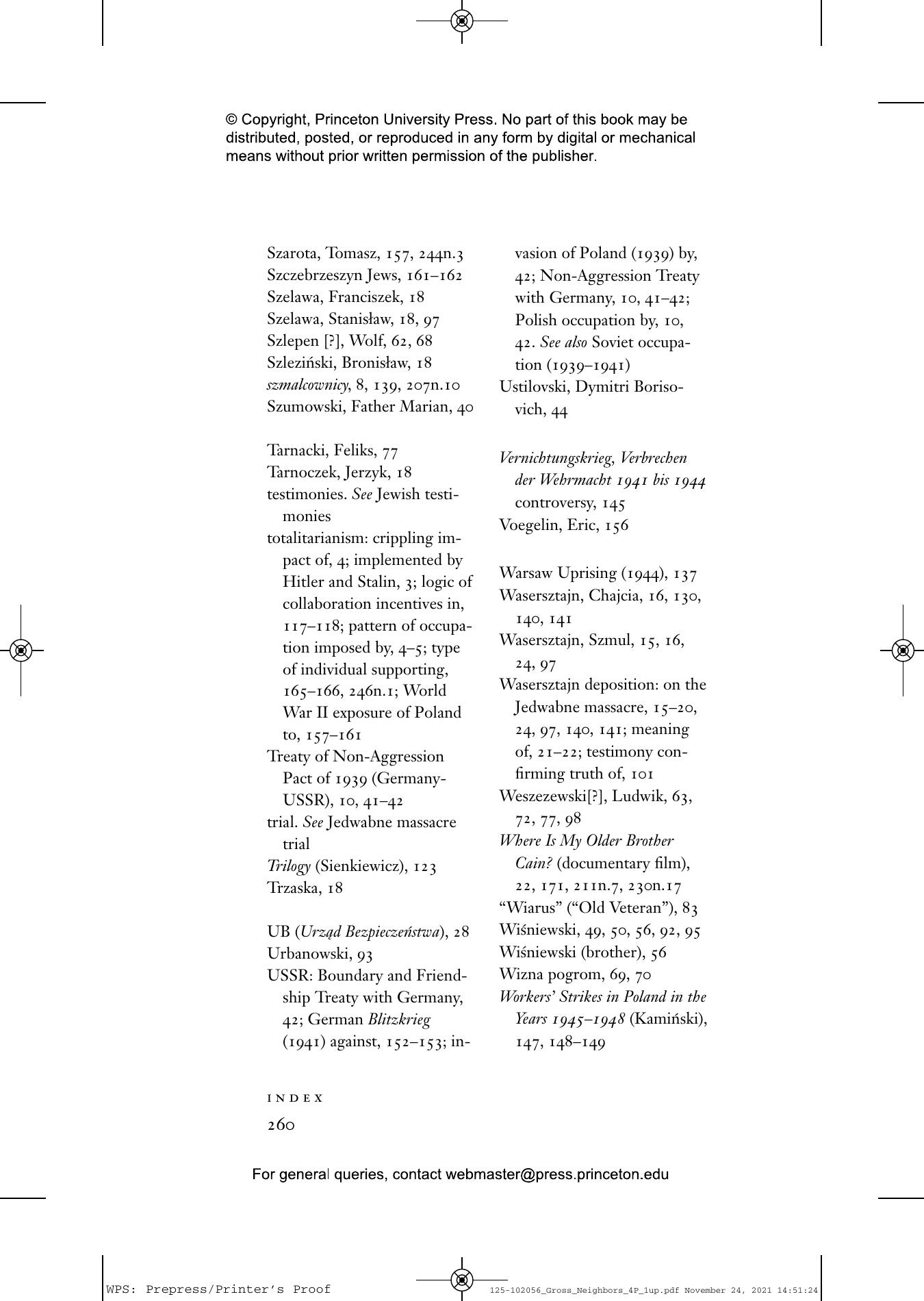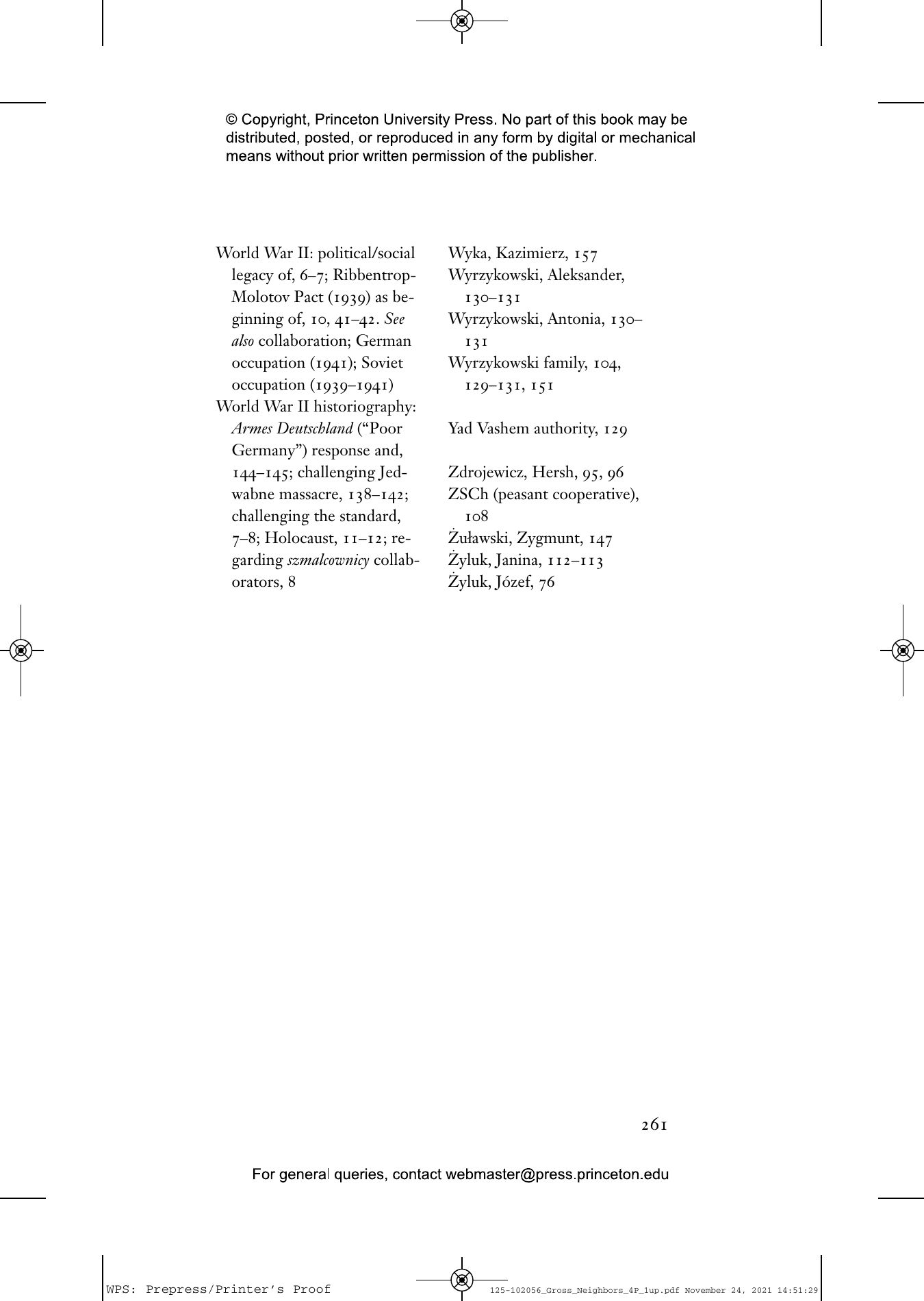On July 10, 1941, in Nazi-occupied Poland, half of the town of Jedwabne brutally murdered the other half: 1,600 men, women, and children—all but seven of the town’s Jews. In this shocking and compelling classic of Holocaust history, Jan Gross reveals how Jedwabne’s Jews were murdered not by faceless Nazis but by people who knew them well—their non-Jewish Polish neighbors. A previously untold story of the complicity of non-Germans in the extermination of the Jews, Neighbors shows how people victimized by the Nazis could at the same time victimize their Jewish fellow citizens. In a new preface, Gross reflects on the book’s explosive international impact and the backlash it continues to provoke from right-wing Polish nationalists who still deny their ancestors’ role in the destruction of the Jews.
Awards and Recognition
- National Book Award Finalist
- Selected Entry for the National Book Critics Circle Award
"Compact, sharp and withering. . . . A book to be read, a book to be reckoned with. . . . Like an oral tale transcribed by a folklorist, it has the ring of the eternal to it. My tale is simple and horrible, it seems to say; listen to it and remember it and pass it along. Hatred like this runs deep in human nature and is ever ready to erupt again. Be warned."—Michael Frank, Los Angeles Times
"An important contribution to the literature of human bestiality unleashed by war. . . . [A] fine, careful book about the awful massacre in Jebwabne."—Steven Erlanger, New York Times Book Review
"Astonishing. . . . The title, Neighbors, is an ice dagger to the heart."—George F. Will, Newsweek
"Compelling and immediate."—Linda Matchan, Boston Globe
"Nothing can make up for the horror. But if the screams of those burning alive at Jedwabne are heard at last, they may not have been completely in vain."—George Steiner, The Observer
"Powerful. . . . Extraordinary."—Jaroslav Anders, New Republic
"Horrifying and thoughtful."—István Deák, New York Review of Books
"Neighbors strikes squarely at Poland's accepted historical narrative."—John Reed, Financial Times
"[A] scrupulously documented study."—Abraham Brumberg, Times Literary Supplement
"Neighbors tells a compelling story admirably. It should be widely read and discussed, for the complex, unsettling issues it raises still need to be fully explored."—Alvin H. Rosenfeld, New Leader
"[Gross] is possessed of the key . . . virtues: moral energy, commitment to accuracy, and the maintenance of a continuing open dialogue between historian, sources, and reader."—Inga Clendinnen, London Review of Books
"Compelling. . . . Gross’s dispassionate book is the most comprehensive effort to uncover the stark truth about Jedwabne."—Robert S. Wistrich, Commentary
“Neighbors is a truly pathbreaking book, the work of a master historian. Jan Gross has a shattering tale to tell, and he tells it with consummate skill and control. The impact of his account of the massacre of the Jews of Jedwabne by their Polish neighbors is all the greater for the calm, understated narration and Gross’s careful reconstruction of the terrifying circumstances in which the killing was undertaken. But this little book is much, much more than just another horror story from the Holocaust. In his imaginative reflections upon the tragedy of Jedwabne, Gross has subtly recast the history of wartime Poland and proposed an original interpretation of the origins of the postwar Communist regime. This book has already had dramatic repercussions in Poland, where it has single-handedly prised open a closed and painful chapter in that nation’s recent past. But Neighbors is not only about Poland. It is a moving and provocative rumination upon the most important ethical issue of our age. No one who has studied or lived through the twentieth century can afford to ignore it.”—Tony Judt, author of Postwar: A History of Europe since 1945
“This tiny book reveals a shocking story buried for sixty years, and it has set off a round of soul searching in Poland. But the questions it raises are of universal significance: How do ‘ordinary men’ turn suddenly into ‘willing executioners?’ What, if anything, can be learned from history about ‘national character?’ Where do we draw the line between legitimately assigning present responsibility for wrongs perpetrated by previous generations and unfairly visiting the sins of the fathers on the children? The author has no facile answers to these problems, but his story asks us to think about them in new ways.”—David Engel, author of The Holocaust: The Third Reich and the Jews
“This is unquestionably one of the most important books I have read in the last decade both on the general question of the mass murder of the Jews during World War II and on the more specific problem of the reaction of Polish society to that genocide. All of the issues it raises are handled with consummate mastery. I finished this short book both appalled at the events it describes and filled with admiration for the wise and all-encompassing skill with which the painful, difficult, and complex subject has been handled.”—Antony Polonsky, Brandeis University
